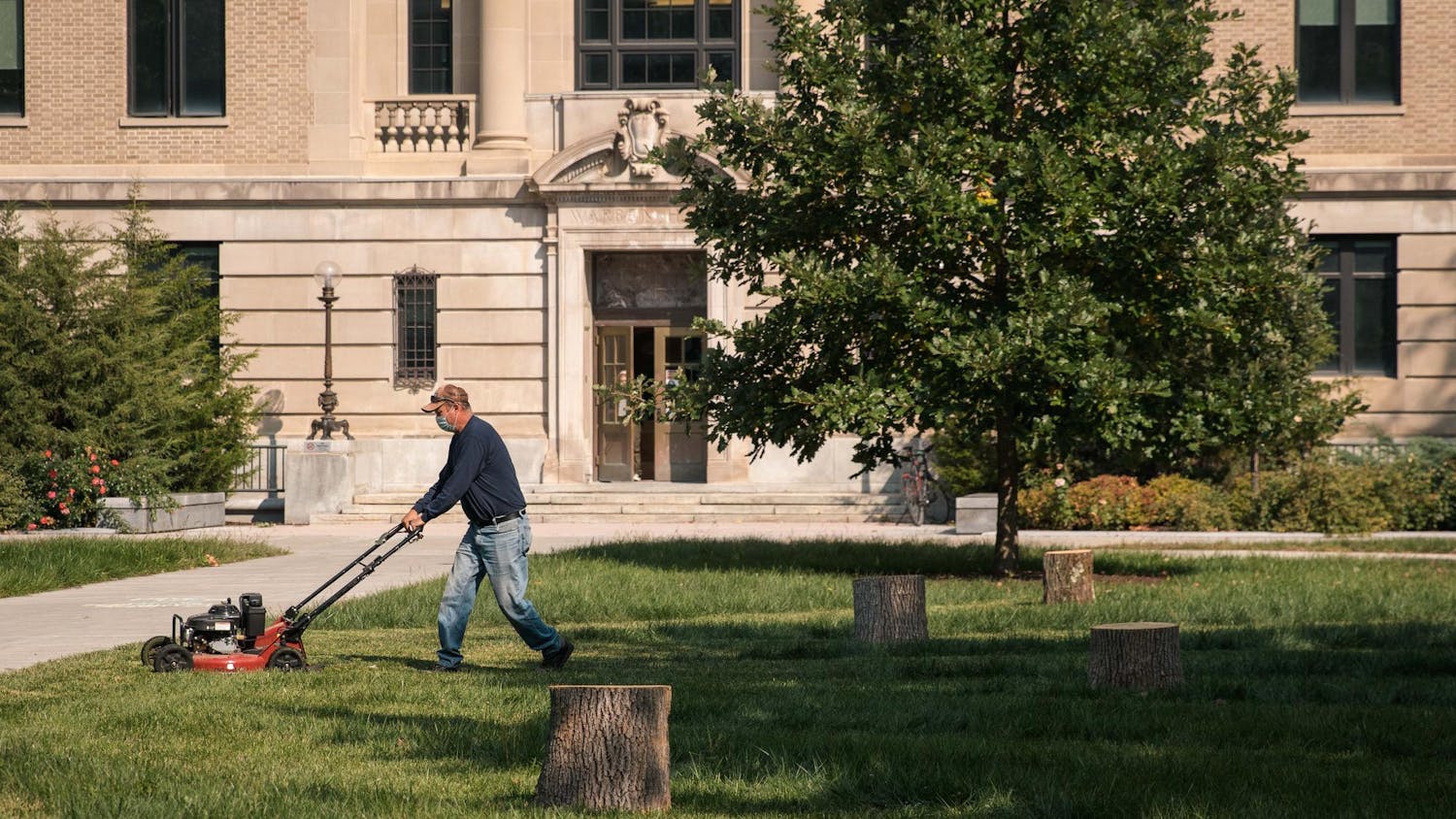“Free Palestine has become the greatest, like, con job in the history of the planet,” John Ondrasik, also known as singer-songwriter for Five for Fighting, said at Bailey Hall on Monday night to an audience of approximately 60 people.
Ondrasik and Patricia Heaton, an Emmy-Award winning actress also known for founding the October 7th Coalition — a group of Christians who stand against rising antisemitism in America — were invited to speak and perform at “Combating Antisemitism through the Arts, on Campus and Beyond” in support of the Jewish community amid the Israel-Hamas war.
Ondrasik led the two-hour event, with Heaton extending her support and courage to the Jewish community at Cornell through a video.
Co-sponsor of the event Prof. Randy Wayne, plant biology, opened the event with a speech introducing Ondrasik as well as the rise of antisemitism on college campuses nationwide. Wayne serves as the faculty leader of Heterodox Academy Campus Community at Cornell University, an organization dedicated to open inquiry and constructive disagreement.
“I would like to start with a land acknowledgment: Israel is a Jewish state, and it has a right to exist,” Wayne said.
Ondrasik has written many songs referencing global political events such as “Blood On My Hands,” “Can One Man Save the World” and “OK.” The latter song became a focal point of the event as it discussed the Oct. 7 massacre, in which 1,200 Israelis were murdered and over 200 were kidnapped by Hamas.
“I saw how a song can provide so much in ways no other media can,” Ondrasik said. “It’s important for artists to use their musical platform to provide a counter-narrative to so many who have also been seduced by the oppressor dogma.”
As he performed, footage of the events referenced in the songs played behind. Nathan Reimer, a Cornell staff member who attended the event, explained that he felt that the videos created a somber mood among the audience as they reflected on events revolving around the conflict.
“I think the music Ondrasik played shows the power of using music and a powerful message to get through the clutter of what you hear on mainstream media,” Reimer said. “It made a stronger point because it’s not just what you understand in your head, but what you feel in your heart.”
Ondrasik used the event not only to show his support for Israel as a non-Jewish person but also to express his confusion with the political climate on college campuses, particularly at prestigious institutions.
He brought up how at the University of California, Los Angeles — his alma mater — students had to pledge their allegiance to pro-Palestine protesters’ views last spring to gain wristbands to pass through portions of campus, effectively barring Jewish students who supported Israel, according to a preliminary injunction issued by U.S. District Judge Mark Scarsi against UCLA.
He also noted Columbia University students’ protest of Veterans Day and Prof. Russell Rickford’s existing employment at Cornell as examples of this climate, calling the world “upside down” for allowing someone who called the Oct. 7 attack “exhilarating” to remain at the University.
The Veterans’ Day protest at Columbia, Ondrasik commented, proved that the conflicts worldwide and tense political climates at prestigious universities were not because of religion, but rather “Marxism and far-left agenda,” going as far as to call it “anti-Americanism.”
In an interview following the event, Ondrasik labeled current college campuses as a “ground zero for antisemitism,” questioning the morals of the administrations at prestigious colleges in ensuring safety for Jewish students on campus.
Ondrasik further commented on how some college campuses can make students feel “surrounded by this antisemitism,” stating that he hoped his talks not only support the Jewish community and anyone with a moral conscience but also stand up against those who encourage antisemitic behavior.
Addressing the crowd, Ondrasik said, “We have to save your fellow students. We have to save these kids who’ve been indoctrinated. They think they’re doing something virtuous. They’ve been seduced into a cult. There’s no other way to put it.”
Ph.D. student Calvin Tolbert, who is Christian, said, “Religious persecution is something that — as an American — I take very seriously. I was heartened to speak to Jewish people after the event and hear them say that they were happy to see people like myself who are not Jewish — who are other religions — being present and standing with them.”
When asked why there were so many empty seats in Bailey Hall in an interview following the event, Wayne said, “[At Cornell,] you learn that there are the oppressed or the oppressors, and you don’t want to do anything … that has anything to do with maybe having somebody identify you as an oppressor.”
However, even amid rising antisemitism on college campuses, Ondrasik expressed that he still has hope for the future, as long as people speak up for what they believe.
“I believe that most people are good, just intimidated by cancel culture and the world we live in,” Ondrasik said. “We just don’t have the luxury of remaining silent anymore because silent majorities, if they don’t speak up, become silent minorities.”
Rowan Wallin ’27 is a Sun contributor and can be reached at rgw77@cornell.edu.
Ashley Lee ’28 is a Sun contributor and can be reached at ayl65@cornell.edu.











